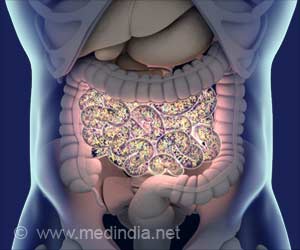Previous research has shown that individuals carrying genetic variations of Gasdermin B have an increased risk of developing inflammatory disorders like asthma or inflammatory bowel disease (IBD).
“The GSDMB protein produced by the genetic variants interferes with the ability of epithelial cells to regenerate and form a healthy barrier critical to healing, for example, in ulcers of patients with ulcerative colitis”, said Theresa Pizarro, lead study author, and the Louis Pillemer Professor of Experimental Pathology at the School of Medicine.
Scientists analyzed samples from Crohn’s disease and ulcerative colitis patients using state-of-the-art techniques, such as single-cell RNA sequencing, CRISPR/Cas9, and epithelial organoid cultures.
Results confirmed substantial increases of GSDMB in biopsies of those with IBD, particularly ulcerative colitis when compared to levels of GSDMB found in healthy individuals.
This increased level led to proliferation or the growth of new cells; migration, or the movement of cells; and decreased adhesion dynamics, the attractive forces between cells and other surfaces that affect motility.
Together, these processes promote restoration of the epithelial layer and effective wound-healing.
Future therapies targeting gasdermin B are not necessarily restricted to IBD or other chronic inflammatory states of the gastrointestinal tract but also have far-reaching implications for effective wound-healing of the lungs, skin, and other organs interfacing with the external environment that require maintenance of an efficient epithelial barrier.
Pizarro credited “this groundbreaking discovery on the collaborative and concerted efforts from immunologists, gastroenterologists, cell biologists, and bioinformaticians from around the world,”
Within that protein family, Gasdermin B (GSDMB), unlike other gasdermin proteins, doesn’t cause pyroptosis, especially in epithelial cells, but instead contributes to keeping the gastrointestinal tract healthya significant discovery for the development of future treatments.
Source: Medindia



